

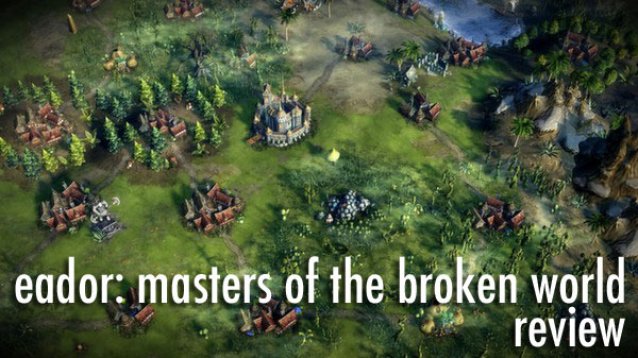
There's a powerful appeal to commanding an empire. For some, the joy lies in overseeing the growth of fledgling villages into bustling cities and maintaining the happiness of their people. For others, it's raising an army and seeing it conquer their enemies. Civilization and the Total War series have long melded those two aspects into wonderfully rich titles, but there are a certain few, similar games from days past that hold a special place in my memory. Master of Magic and its spiritual successors allowed for me to conquer more than just the kingdoms of man. Ripe for conquest was a world of fantasy, with dragons and goblins and elves, and unique hero units to recruit and control. They felt more alive than anything else I had played from its genre of grand turn-based strategy. But unfortunately they've become something of a niche market, with worthwhile titles few and far between.
Thankfully, this fantasy sub-genre refuses to die. Stardock is set to release its latest edition of Fallen Enchantress this year, with a dense beta already available to those who pre-order. And Age of Wonders, a series I greatly enjoyed more than a decade ago, is returning with a third sequel this Autumn. 2013 is looking to be a promising year for armchair generals, be it of the sorcerer variety or otherwise.
Enter Eador: Masters of the Broken World, a recently released remake of a Eador: Genesis. From its footage, it and its predecessor look like everything I could want from a title following in the footsteps of Master of Magic: a colorful world of fantasy with provinces and resources to capture, strongholds to strengthen, hero units to command, quests, ancient tombs, turn-based strategy from campaign and combat maps, and multiplayer options to battle with friends. Nothing could excite me more.
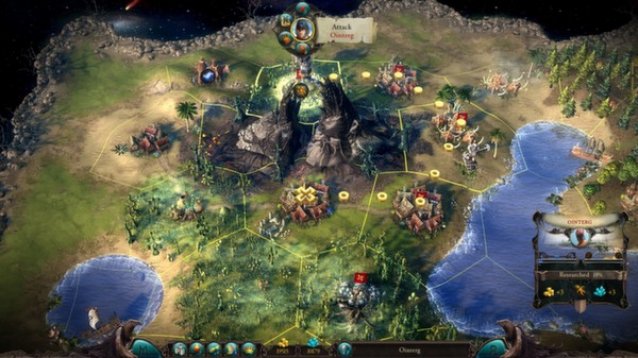
Eador is not exactly that game. It instead takes those pieces and molds it into something similar but also quite different, playing far more like a board game than Civilization with magic. However, Eador commits to neither format completely, resulting in play sessions that can be reptitive, grindy and lengthy.
There are three game modes out of the box — Campaign, Custom, and Multiplayer. Campaign is where the bulk of the content is located, and also where Eador's more unique features lie. The player controls a disembodied entity whose goal is conquer the Astral, a realm of shards that seemingly float in the vastness of space. These shards, once captured, reward the player with flat bonuses, new buildings to construct, technologies and other riches. It sounds and looks exciting, but its execution is less so.
Each shard is its own map. The player and his or her enemies control a single stronghold upon them, with the ultimate goal being their capture. Conquering provinces along the way increases gold and gem income per turn, the former necessary to maintain the player's stronghold and armies and the latter for casting spells. It's easy enough to play, but not necessarily as a result of an intuitive interface. Rather, the actions that can be taken are more limited than what its screenshots and advertisements proclaim.
One reason is that there's very little empire management to be had. The bulk of management is instead focused on the stronghold. It's from there that the player constructs most of their buildings - though some limited options can be placed in provinces to improve growth or quell unrest, once unlocked - and only from there where they buy equipment, recruit soldiers, and equip spells.
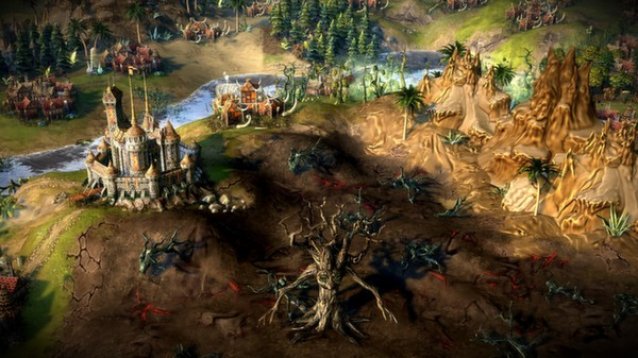
The mechanic that reinforces its feeling of a board game the most, though, is that I could not move through tiles I did not own, nor request a treaty for access to that land. The provinces are simply pieces that must be claimed from the independent factions that field no armies on the map itself either through bribery, quests or combat. I had to carve a literal path to the enemy's stronghold in order to win a shard.
In of itself, there's nothing wrong with any of that. Turn-based strategy mixed with the simplistic fun of a board game sounds like an interesting melding of ideas. But I wouldn't want to play Monopoly for hours on end, and so I found its above issues mixed with its longer play sessions repetitive. This wasn't aided by the fact that the quickest way to capture provinces is often through its combat.
Eador's combat is one of its weakest aspect. Similar to Heroes of Might and Magic, battlefields are laid out in a hexagonal grid with opposing units on either side. Each army takes turns in moving and attacking with their soldiers. But it lacks a certain spark that makes combat exciting. Animations are ponderous. Models are dull. The battlefields themselves aren't particularly diverse. And while units do gain new abilities through level ups, the smaller size of those ended with a lot of clobbering matches in the center field. Thankfully, the F10 and F11 keys acted as auto-battle functions.
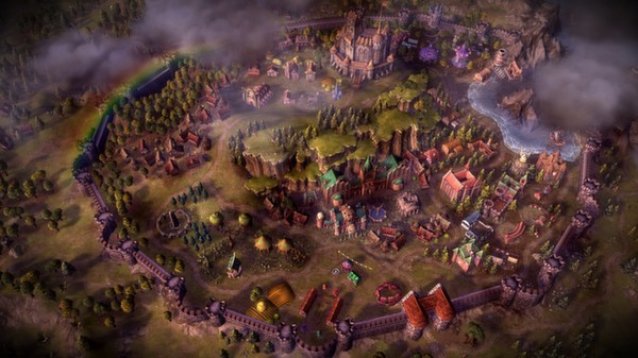
But its cardinal sin is that for a game about building an empire, I felt very little connection to my kingdoms. Hero units have no personality nor history, existing solely as character classes — Warrior, Scout, Wizard and Commander — to lead the player's armies. They feel like little more than pieces on a board, whereas the games Eador's developers cite as influences have unique heroes with names and backgrounds that help their worlds feel more alive. And because each shard is its own map rather than one large world, I never felt there was much of a connected identity aside from certain bonuses I could import from one conquest to the next.
It's not entirely a lost cause. It can actually be quite charming. If the player's army is strong enough, provinces are more receptive to negotiating their surrender or allegiance. Each factor responds differently to the player, and often through humorous dialog. The game in general is full of witty writing. Even the player's choices to diplomatic talks or the numerous random events can elicit laughter. It's possible to be a downright lunatic to both one's subjects and enemies.
And the choices made affect the player's alignment, as well. Acquiescing to a troll's demand and sending a cart full of children in order to appease its belly may not win the favor of the people but will certainly affect the composition of your army as each unit also has its own alignment. The route taken will even alter the player's title, icon, and reputation amongst the provincial factions and demigods.
There is a decent amount of strategy on the campaign maps despite my earlier concerns. Money is tight, and heroes, hero resurrections (there is no permadeath), equipment, diplomacy and more can be quite expensive. As only the heros are capable of leading armies, and with their purchase so prohibitive, it's not possible to overrun the map with swarms of troops. And if I wasn't careful about my positioning, I could — and did on an embarassing number of occasions — found myself trapped behind enemy lines with a crippled army. Thanks to the campaign movement mechanic, this often lead to certain death. When I was too afraid to venture beyond the boundaries of my own territories, I could explore each province for ancient dwellings, creating more opportunities for random events and experience. Furthermore, only one building can be constructed for the entire shard per turn, adding to the dilemma of choice.
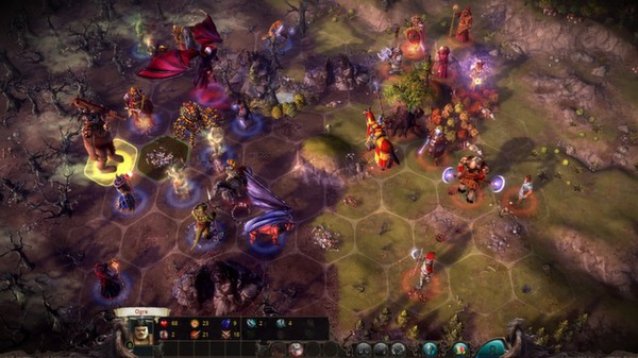
It's a pretty game when it wants to be, too. The campaign map is full of vibrancy and set against a quite literal stellar background. With a generation in love with realism and darker splashes of color, Eador is a sight for sore eyes.
Unfortunately, its other modes bring down whatever high I had. The Custom game mode allows for randomized matches, though without the ability to vie for control of multiple shards it's missing what made Eador interesting in the first place. Its online mode not only requires a separate account from Steam, but the serial key to be entered each time. If that wasn't irritating enough, the only form of multiplayer action is the game's combat. It has no co-operative or competitive campaign. Players simply select what units they want, outfit them with equipment and abilities using a pool of points, and hack away at each other in some of the least inspiring battles I've played from a turn-based strategy game.
Overall, I like what Snowbird Games was trying to do with its shard mechanic. The galactic tug of war for them is grand, I only wish its execution on the ground was more engaging. As it stands, I just don't care about my empire or its citizens. It doesn't have the same kind of visual growth or personality that has made me so invested in its brethren. On the other hand, the writing of the random events and dialog is so amusing I want to keep playing just for them. But at the end of the day, there are simply better alternatives to scratch that Masters of Magic itch.
A copy of Eador: Masters of the Broken World was provided to us for review by the publisher.

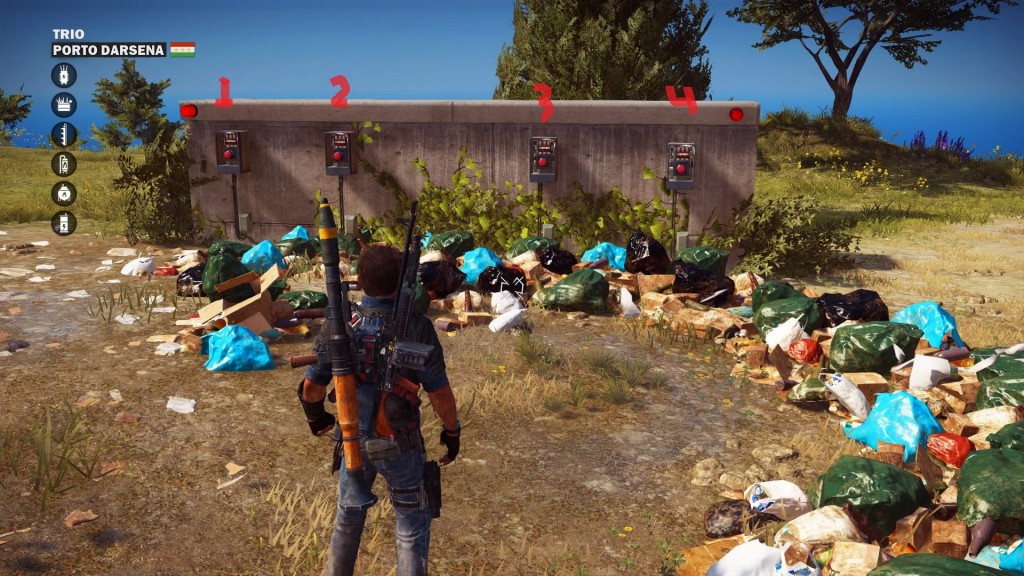

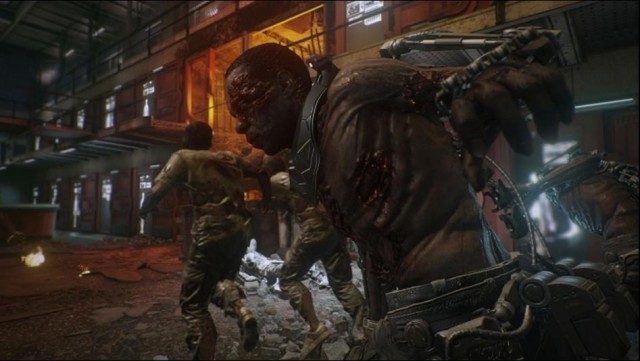
 Grand Theft Auto 5 Review: Incremental Evolution
Grand Theft Auto 5 Review: Incremental Evolution The Crew Guide: How to Get the East Coast Hidden Car
The Crew Guide: How to Get the East Coast Hidden Car Singularity – PC Walkthrough
Singularity – PC Walkthrough How to become a vampire and how to cure vampirism in Elder Scrolls Online
How to become a vampire and how to cure vampirism in Elder Scrolls Online Majoras Mask 3D (3DS) Masks Locations
Majoras Mask 3D (3DS) Masks Locations